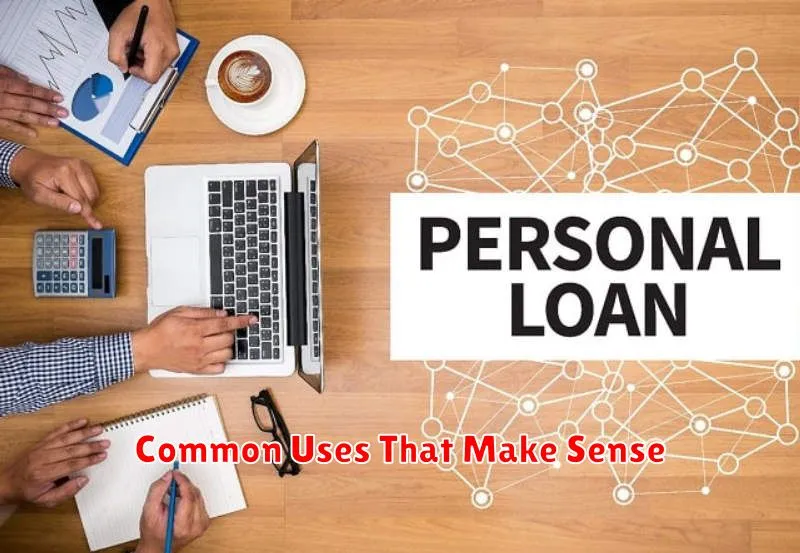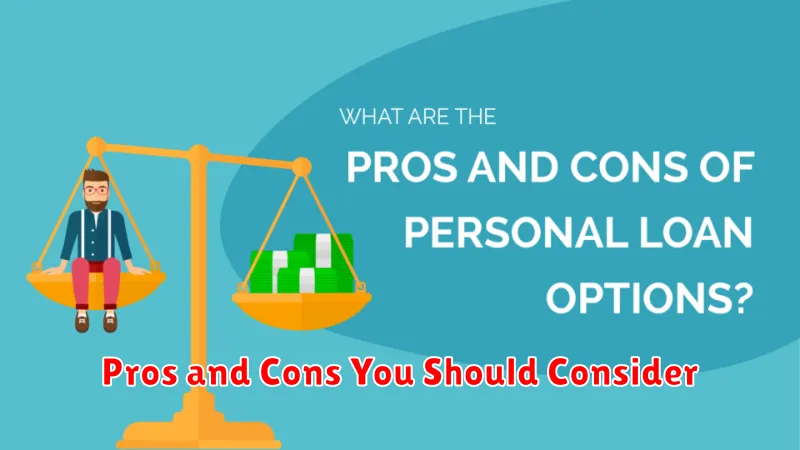Considering a personal loan? Understanding the intricacies of personal loans is crucial before you commit to borrowing. This comprehensive guide will equip you with the knowledge necessary to navigate the process effectively, helping you make informed decisions about your personal finances. We’ll explore various aspects of personal loans, including interest rates, repayment terms, credit score impact, and the different types of loans available. Learn how to compare loan offers, identify potential pitfalls, and ultimately, choose the best personal loan to meet your specific financial needs.
From securing the lowest possible interest rate to understanding the loan application process, this article covers it all. We’ll delve into the importance of your credit score in securing favorable loan terms and discuss strategies to improve your chances of approval. We’ll also provide valuable tips on managing your loan repayments and avoiding potential debt traps. Whether you’re planning a major purchase, consolidating existing debt, or simply need extra funds, understanding the ins and outs of personal loans is essential for responsible borrowing and achieving your financial goals.
What Is a Personal Loan and How Does It Work?
A personal loan is an unsecured loan provided by a bank or credit union. Unlike secured loans (like mortgages or auto loans), it doesn’t require collateral. This means the lender assesses your creditworthiness based solely on your financial history.
The process typically begins with an application, where you specify the desired loan amount and repayment term. The lender reviews your credit report, income, and debt-to-income ratio to determine your eligibility and the applicable interest rate. If approved, you receive the funds directly into your bank account.
Repayment involves making fixed monthly payments over the agreed-upon term. These payments consist of principal (the original loan amount) and interest (the cost of borrowing). Failing to make timely payments can negatively impact your credit score and potentially lead to collection efforts.
Interest rates vary depending on factors such as your credit score, loan amount, and repayment term. It’s crucial to compare offers from multiple lenders to secure the most favorable terms.
Types of Personal Loans: Secured vs Unsecured
Personal loans are broadly categorized into two main types: secured and unsecured. The key difference lies in the presence of collateral.
A secured loan requires you to pledge an asset, such as a car or a house, as collateral. If you default on the loan, the lender can seize and sell this asset to recoup their losses. Secured loans typically offer lower interest rates because the lender has less risk.
An unsecured loan, on the other hand, doesn’t require any collateral. Approval depends entirely on your creditworthiness. While more convenient, unsecured loans usually come with higher interest rates to compensate for the increased risk to the lender.
Choosing between a secured and unsecured loan depends on your individual circumstances and risk tolerance. Consider factors like your credit score, the amount you need to borrow, and the assets you’re willing to risk.
Common Uses That Make Sense

Personal loans can be valuable financial tools when used responsibly. Some common and sensible uses include debt consolidation, allowing you to simplify payments and potentially lower interest rates. Home improvements, such as renovations or repairs, are another practical application, boosting property value and improving living conditions. Medical expenses, often unpredictable and costly, can be effectively managed with a personal loan, avoiding high-interest credit card debt. Finally, major purchases, like a reliable vehicle or essential appliances, can be financed through a personal loan, allowing for planned and manageable payments.
It’s crucial to remember that responsible borrowing is key. Only use a personal loan for essential needs and ensure you can comfortably manage the monthly repayments without impacting your overall financial health.
How Interest Rates Are Calculated
Personal loan interest rates are calculated using several factors. The most significant is your creditworthiness, assessed through your credit score and history. A higher credit score generally results in a lower interest rate, reflecting lower risk for the lender.
The loan amount also influences the rate. Larger loans might attract slightly higher rates due to the increased risk for the lender. The loan term (the repayment period) plays a role as well. Longer loan terms often mean higher interest rates, as the lender faces a greater risk over a longer period.
The type of loan also affects the rate. Secured loans (backed by collateral) usually have lower interest rates than unsecured loans. Finally, the current economic conditions and the lender’s own pricing policies also contribute to the final interest rate.
The actual calculation uses a formula determined by the lender, often involving the annual percentage rate (APR), which incorporates the interest rate and any fees. The APR is expressed as a yearly percentage and reflects the true cost of borrowing.
Pros and Cons You Should Consider

Before taking out a personal loan, carefully weigh the pros and cons. A key advantage is the flexibility; personal loans can be used for various purposes, from debt consolidation to home improvements. The fixed repayment schedule offers budgeting predictability, and you’ll receive a lump sum upfront, unlike credit cards.
However, high interest rates are a significant drawback, especially compared to other borrowing options. Late payment fees can quickly escalate your debt, and a poor credit score might lead to loan denial or unfavorable terms. It’s crucial to understand the total cost of borrowing, including interest and fees, to determine if the loan aligns with your financial capabilities.
Furthermore, impact on credit score is another factor. While responsible repayment can positively affect your score, defaulting can severely damage it. Consider the long-term financial implications; ensure the loan amount is manageable within your budget to avoid financial strain. Always compare offers from multiple lenders to secure the best interest rate and terms possible.
Questions to Ask Before Signing Any Agreement
Before committing to a personal loan, carefully review the agreement and ask crucial questions. Understanding the terms is vital to avoid future financial difficulties.
What is the total cost of the loan, including all fees and interest? This ensures transparency about the overall repayment amount.
What is the Annual Percentage Rate (APR)? The APR reflects the true cost of borrowing, encompassing interest and fees.
What is the repayment schedule, including the loan term and monthly payments? Knowing the repayment plan allows you to budget effectively.
What are the consequences of late or missed payments? Understanding late payment penalties helps you avoid unnecessary charges.
What are the prepayment penalties, if any? This clarifies any charges for paying off the loan early.
Are there any hidden fees or charges? Thorough inquiry ensures no unexpected costs arise.
What is the loan’s interest rate type – fixed or variable? A fixed rate provides predictable payments, while a variable rate fluctuates with market conditions.
Is there a grace period? A grace period offers flexibility in case of unforeseen circumstances.
What is the process for disputing charges or errors? Knowing the dispute resolution procedure is important for addressing any discrepancies.
Asking these key questions and thoroughly understanding the answers will empower you to make an informed decision before signing a personal loan agreement.
How Personal Loans Affect Your Credit Score

Applying for a personal loan can impact your credit score in several ways. Initially, a hard inquiry will be made on your credit report, which can slightly lower your score. However, this impact is usually minimal and temporary.
Responsible repayment of the loan has a significantly more positive effect. On-time payments consistently demonstrate creditworthiness, leading to a gradual increase in your credit score over time. The length of your credit history also gets a boost as the loan adds to the age of your credit accounts.
Conversely, missed or late payments severely damage your credit score. This negative mark can persist on your report for several years, making it harder to obtain future loans or credit at favorable rates. The utilization of your credit after taking the loan may also affect your score. Managing your credit effectively while repaying the personal loan is crucial.
Therefore, before applying for a personal loan, carefully assess your financial situation and repayment capacity to avoid potential negative consequences to your credit score. A well-managed personal loan can be a beneficial tool to improve your credit health, while mismanagement can cause significant harm.

